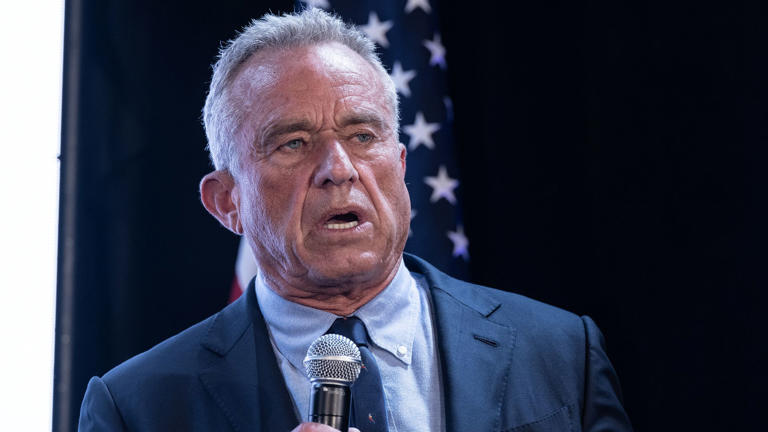“Robert F. Kennedy Jr., RFK Jr. lawsuit, Meta lawsuit, election interference, free speech, First Amendment, social media censorship, Section 230, American Values 2024, Meta campaign video, content moderation”
“Independent presidential candidate Robert F. Kennedy Jr. has filed a lawsuit against Meta, alleging First Amendment violations and election interference following the temporary removal of a campaign video. Explore the legal implications and the broader debate over free speech and content moderation on social media platforms.”

Robert F. Kennedy Jr., an independent presidential candidate and vocal critic of vaccines, has initiated legal action against Meta, the parent company of Facebook, claiming the social media giant has infringed upon his First Amendment rights and engaged in “election interference.” This follows Meta’s temporary removal of a promotional video related to Kennedy’s campaign efforts.
Kennedy’s lawsuit raises complex questions about free speech and the role of private companies in moderating content. However, the First Amendment traditionally protects against government censorship, not actions taken by private entities. Moreover, Section 230 of the Communications Decency Act provides a legal shield for online platforms from being held liable for their content moderation decisions.
The origin of the controversy lies in the brief removal by Meta of a 30-minute video produced by the super PAC American Values 2024 (AV24), promoting Kennedy. Meta’s spokesperson, Andy Stone, clarified that the video’s link was “mistakenly blocked” due to an error and was reinstated promptly after the mistake was realized. Despite this, the lawsuit alleges that Meta continues to limit the visibility of the video, a claim supported by interactions with Meta’s AI chatbot, which reportedly confirmed ongoing restrictions on the video’s link as of May 5th.
Kennedy’s legal challenge is part of a broader narrative involving accusations against social media companies of bias and censorship, particularly from conservative perspectives. The lawsuit also references Murthy v. Missouri, a recent Supreme Court case examining whether the Biden administration improperly influenced social media platforms to suppress certain viewpoints. While the justices appeared skeptical during the hearings, the case underscores the ongoing debate over the balance between government influence and private sector control over speech.
Furthermore, the lawsuit accuses Meta and its CEO, Mark Zuckerberg, of conspiring to suppress the advocacy efforts of AV24 on behalf of Kennedy’s campaign. It seeks not only damages but also an injunction against further alleged censorship of the campaign video.
This case highlights the ongoing tension between social media platforms and the regulation of speech, emphasizing the challenges of content moderation amidst political cycles and accusations of bias. Whether Kennedy’s lawsuit will catalyze changes in how social media companies manage content and address allegations of censorship remains to be seen, but it certainly reflects broader societal concerns about freedom of expression and the power of tech giants in shaping public discourse.
Read More-
- Apple AI Evolution: Powering Future Innovations with M2 Ultra and M4 Chips
- Leadership Transition at Cornell University: Martha Pollack Retires Amid Ivy League Changes
- The US Department of Education New FAFSA Support Initiative
- Senate Passes $105 Billion FAA Bill: Major Advances in Air Safety and Passenger Services